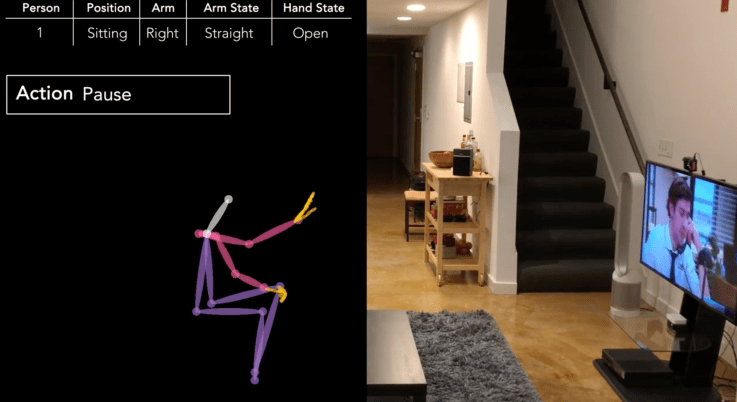
The company’s “Vision Assistant” product works pretty simply, users place the camera in their house and then once they get it fixed in position, they fire up the app and drag boxes over the internet-connected appliances or TVs or lights. From there, the Piccolo camera is basically looking to record your geometry through what’s called skeletal tracking — don’t worry it’s not using an X-ray or anything — which puts your movement into a model that tracks your body position. From there, the device will know where you’re pointing your hand and can interface with the compatible smart home item. It does more than just turn stuff on and off, they’re experimenting with gestures to fast forward through a Netflix show, change modes on the fan, etc. etc.
Founders Marlon Misra and Neil Raina started studying the technologies behind Piccolo through an interest in self-driving cars. The pair of buddies emerged from taking Udacity’s self-driving program in 2016 with an interest in perceptual engines and their far-flung capabilities, an interest which eventually turned to controlling the smart home with body movements.

There are definitely limitations from the existing setup, namely that it’s all pretty 2D at the moment and because of this, things seem like they would get pretty wonky if you had a bunch of smart home products stuffed into your casa. The team said that a hefty chunk of what they’re working with is subject to change and that they’re looking at the possibility of adding something like a depth camera.
One of the company’s biggest hurdles is likely getting people to feel comfortable tossing an internet-connected camera in their homes, but while people are skeptical of Google and Amazon because they have a pronounced interest to tailor ads as tightly as possible, the founders tell me they feel like they may have an advantage simply because they are a scrappy upstart that doesn’t have the scale or diverging interests of their competitors.

It’s early days but as computer vision advances bring new functionality to things like smart security cameras, there’s reason to see that the indoor camera could be the key to finding the full potential of the smart home assistant as well.
source:TechCrunch


Post a Comment